Endoplasmin Polyclonal Antibody
- Catalog No.:YT1560
- Applications:WB;IHC;IF;ELISA
- Reactivity:Human;Mouse
- Target:
- Endoplasmin
- Fields:
- >>Protein processing in endoplasmic reticulum;>>PI3K-Akt signaling pathway;>>IL-17 signaling pathway;>>Estrogen signaling pathway;>>Thyroid hormone synthesis;>>Salmonella infection;>>Pathways in cancer;>>Chemical carcinogenesis - receptor activation;>>Prostate cancer;>>Lipid and atherosclerosis;>>Fluid shear stress and atherosclerosis
- Gene Name:
- HSP90B1
- Protein Name:
- Endoplasmin
- Human Gene Id:
- 7184
- Human Swiss Prot No:
- P14625
- Mouse Gene Id:
- 22027
- Mouse Swiss Prot No:
- P08113
- Immunogen:
- The antiserum was produced against synthesized peptide derived from human GRP94. AA range:754-803
- Specificity:
- Endoplasmin Polyclonal Antibody detects endogenous levels of Endoplasmin protein.
- Formulation:
- Liquid in PBS containing 50% glycerol, 0.5% BSA and 0.02% sodium azide.
- Source:
- Polyclonal, Rabbit,IgG
- Dilution:
- WB 1:500 - 1:2000. IHC 1:100 - 1:300. IF 1:200 - 1:1000. ELISA: 1:20000. Not yet tested in other applications.
- Purification:
- The antibody was affinity-purified from rabbit antiserum by affinity-chromatography using epitope-specific immunogen.
- Concentration:
- 1 mg/ml
- Storage Stability:
- -15°C to -25°C/1 year(Do not lower than -25°C)
- Other Name:
- HSP90B1;GRP94;TRA1;Endoplasmin;94 kDa glucose-regulated protein;GRP-94;Heat shock protein 90 kDa beta member 1;Tumor rejection antigen 1;gp96 homolog
- Observed Band(KD):
- 92kD
- Background:
- This gene encodes a member of a family of adenosine triphosphate(ATP)-metabolizing molecular chaperones with roles in stabilizing and folding other proteins. The encoded protein is localized to melanosomes and the endoplasmic reticulum. Expression of this protein is associated with a variety of pathogenic states, including tumor formation. There is a microRNA gene located within the 5' exon of this gene. There are pseudogenes for this gene on chromosomes 1 and 15. [provided by RefSeq, Aug 2012],
- Function:
- function:Molecular chaperone that functions in the processing and transport of secreted proteins. Has ATPase activity.,PTM:Phosphorylated.,similarity:Belongs to the heat shock protein 90 family.,subcellular location:Identified by mass spectrometry in melanosome fractions from stage I to stage IV.,subunit:Homodimer; disulfide-linked. Component of an EIF2 complex at least composed of CUGBP1, CALR, CALR3, EIF2S1, EIF2S2, HSP90B1 and HSPA5 (By similarity). Part a large chaperone multiprotein complex comprising CABP1, DNAJB11, HSP90B1, HSPA5, HYOU, PDIA2, PDIA4, PPIB, SDF2L1, UGT1A1 and very small amounts of ERP29, but not, or at very low levels, CALR nor CANX.,
- Subcellular Location:
- Endoplasmic reticulum lumen . Sarcoplasmic reticulum lumen . Melanosome . Identified by mass spectrometry in melanosome fractions from stage I to stage IV. .
- Expression:
- Blood,Brain,Liver,Lung,Platelet,Skin,
- June 19-2018
- WESTERN IMMUNOBLOTTING PROTOCOL
- June 19-2018
- IMMUNOHISTOCHEMISTRY-PARAFFIN PROTOCOL
- June 19-2018
- IMMUNOFLUORESCENCE PROTOCOL
- September 08-2020
- FLOW-CYTOMEYRT-PROTOCOL
- May 20-2022
- Cell-Based ELISA│解您多样本WB检测之困扰
- July 13-2018
- CELL-BASED-ELISA-PROTOCOL-FOR-ACETYL-PROTEIN
- July 13-2018
- CELL-BASED-ELISA-PROTOCOL-FOR-PHOSPHO-PROTEIN
- July 13-2018
- Antibody-FAQs
- Products Images
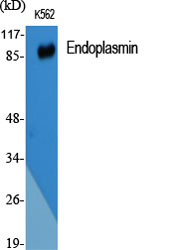
- Western Blot analysis of various cells using Endoplasmin Polyclonal Antibody diluted at 1:1000
.jpg)
- Western Blot analysis of HeLa cells using Endoplasmin Polyclonal Antibody diluted at 1:1000
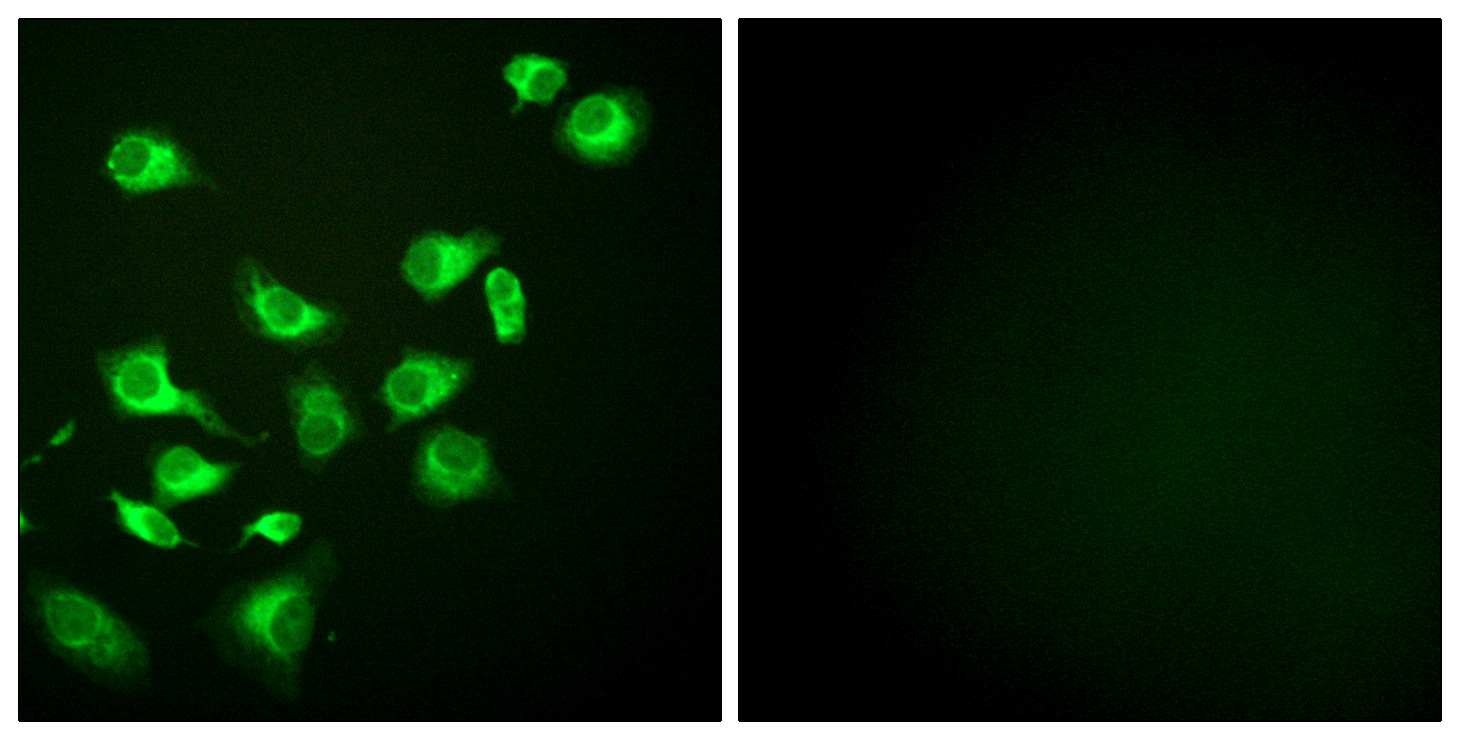
- Immunofluorescence analysis of HepG2 cells, using GRP94 Antibody. The picture on the right is blocked with the synthesized peptide.
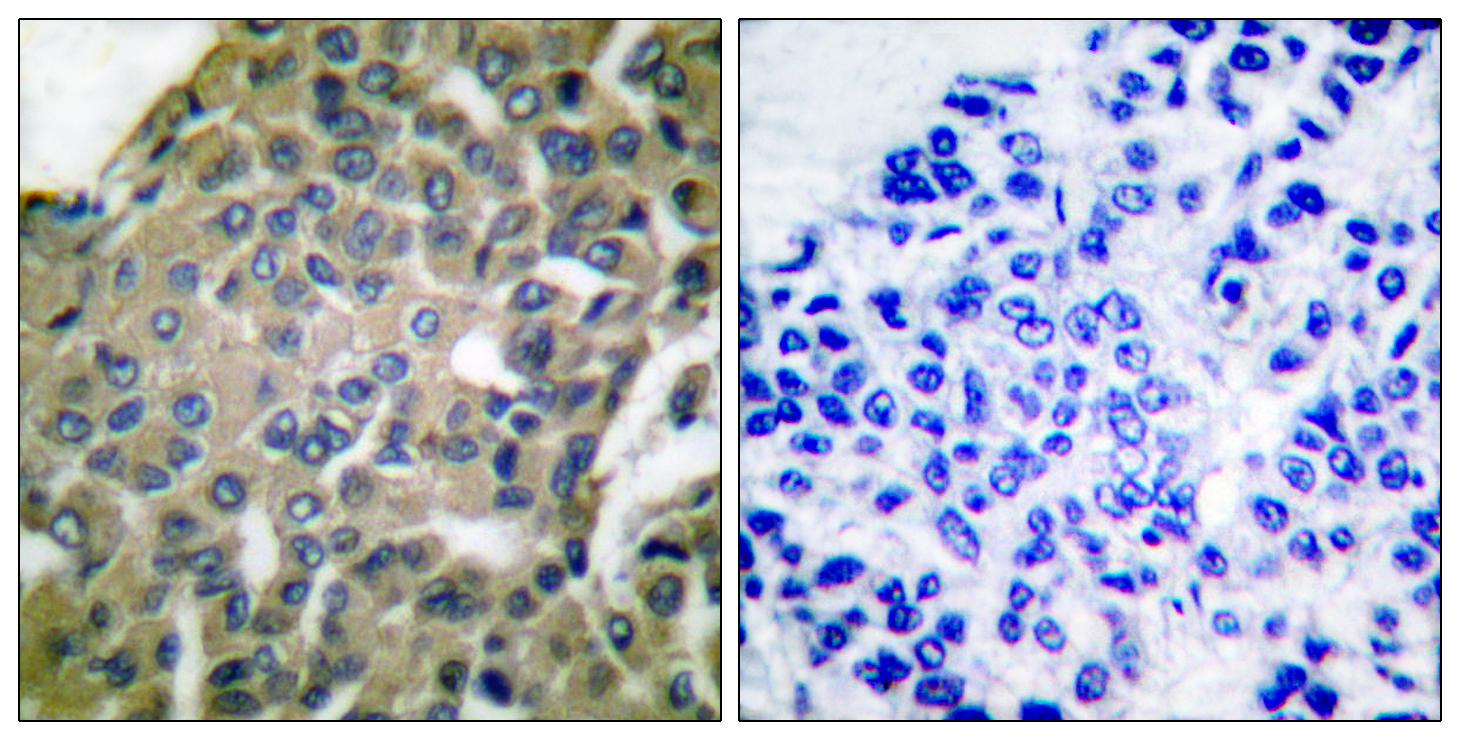
- Immunohistochemistry analysis of paraffin-embedded human breast carcinoma tissue, using GRP94 Antibody. The picture on the right is blocked with the synthesized peptide.
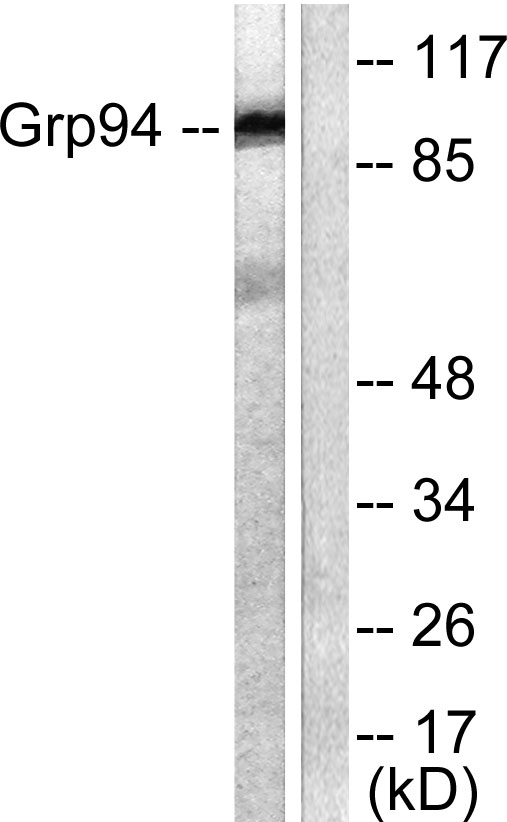
- Western blot analysis of lysates from SKOV3 cells, using GRP94 Antibody. The lane on the right is blocked with the synthesized peptide.
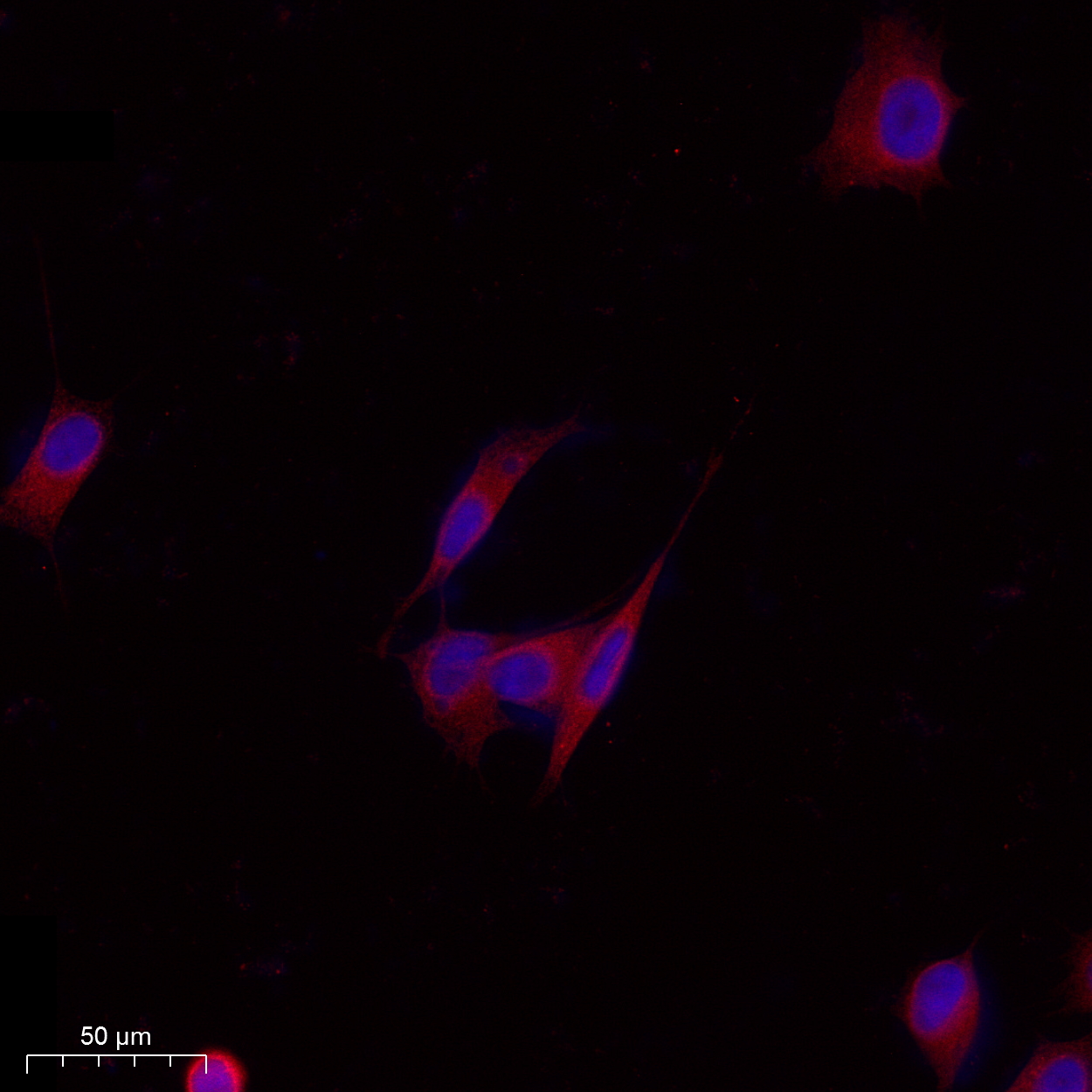
- Immunofluorescence analysis of MCF7 cell. 1,primary Antibody was diluted at 1:100(4°C overnight). 2, Goat Anti Rabbit IgG (H&L) - AFluor 594 Secondary antibody(catalog No: RS3611) was diluted at 1:500(room temperature, 50min).



